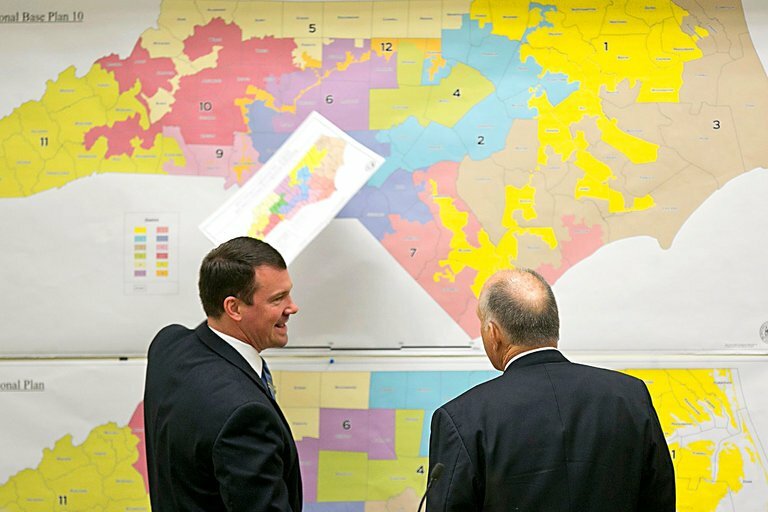Gov. Roy Cooper and Att. Gen. Josh Stein filed an amicus brief* in the redistricting case currently before the North Carolina Supreme Court calling on the court to declare “partisan gerrymandering is unconstitutional.” That would be a reversal of Stephenson v Bartlett (2002), which stated that the General Assembly may “utilize… partisan considerations” (page 68).
As part of their brief, Cooper and Stein make it clear that they are not asking the court to impose a proportional representation scheme on North Carolina (page 15):
While our constitution does not require absolute proportionality between parties’ statewide voter share and their composition in the legislature, it requires a responsive relationship between the people’s will and the election’s results.
But what does that mean they want the court to do? Cooper and Stein tell the justices that later in the brief (page 48):
[T]his Court should provide clear guidance to the General Assembly on how to draw districts that comply with the constitution. For example, the Court could direct the legislature to draw districts within 5% of the median outcome expected from nonpartisan redistricting criteria, at a statewide level, across a range of electoral circumstances.
The median value is simply the “middle value when a data set is ordered from least to greatest.” For example, in a set of numbers 1, 3, 6, 7, and 8, the median is 6. (The mean is 5.)
By asking the court to impose a median outcome plan “at the statewide level” they are seeking to exclude redistricting plans that impose a median outcome at the county or county-cluster level. That would give the court the green light to, for example, require that all six districts in the Granville-Wake senate county cluster (see Figure 1) be drawn to favor Democrats. The Civitas Partisan Index found that, of the six districts currently in the Granville-Wake cluster, four are safe for Democrats, one leans Democratic, and one is a toss-up.

Figure 1: The Granville-Wake North Carolina Senate county cluster (source: Cooper et. al)
Democrats need to win all or nearly all urban legislative districts in order to have a chance of obtaining majorities in the General Assembly because they generally do poorly in the rest of the state, including suburban counties that surround urban centers. So they would like to have all seats in clusters like Granville-Wake favor them to make up for losses elsewhere. The Cooper-Stein recommendation, if accepted by the court, would allow that.
On the other hand, a court order that imposes median outcomes at the county or county-cluster level would prevent Democrats from sweeping all seats in urban areas, which is why Cooper and Stein seek median outcomes only at the statewide level.
If the court took their advice, they would be gerrymandering in the name of stopping gerrymandering.
*Also known as an “amicus curiae” or “friend of the court brief,” an amicus brief is a brief filed by someone who is not a party to a case “offering additional, relevant information or arguments the court may want to consider before making their ruling.”


